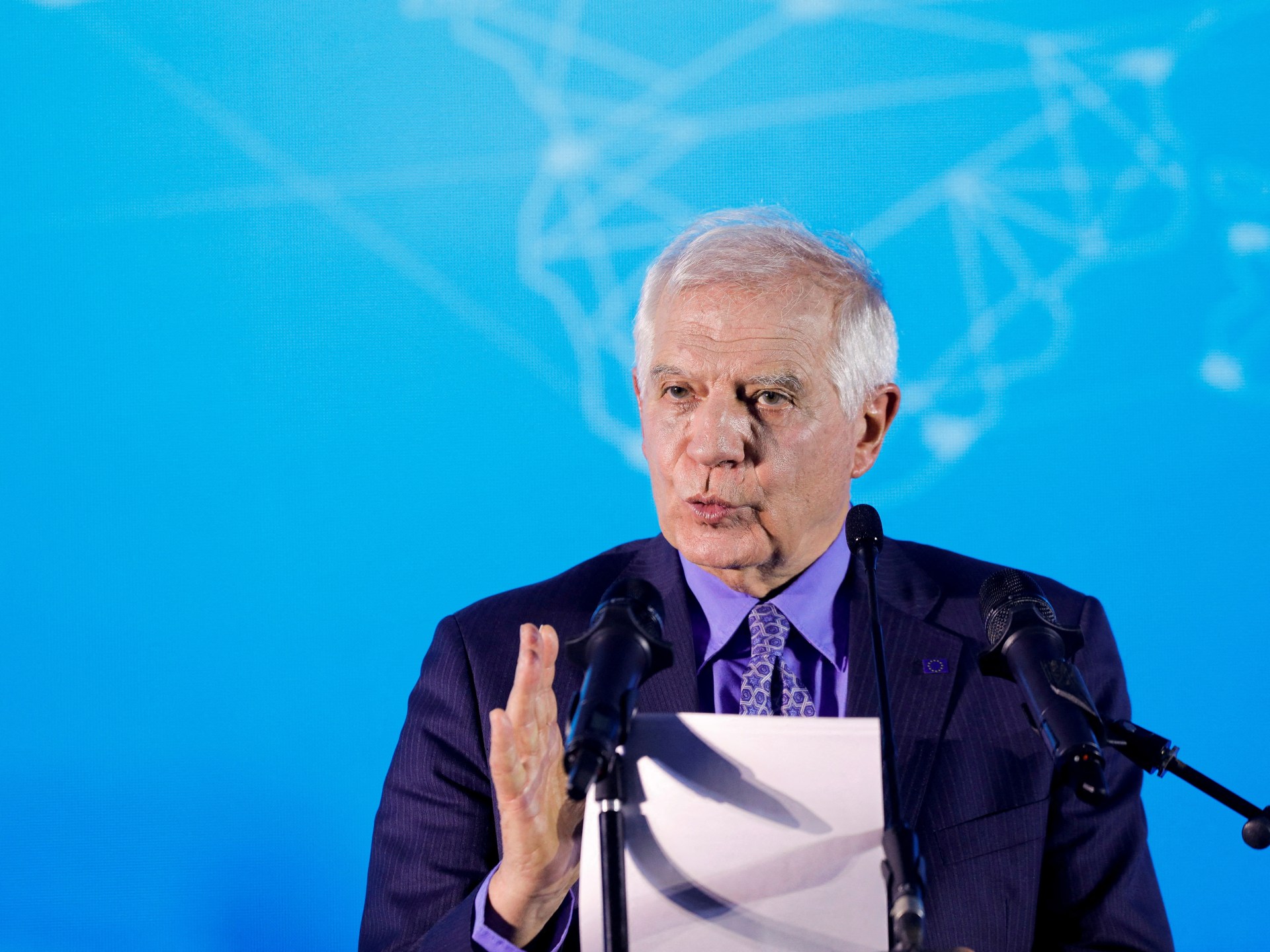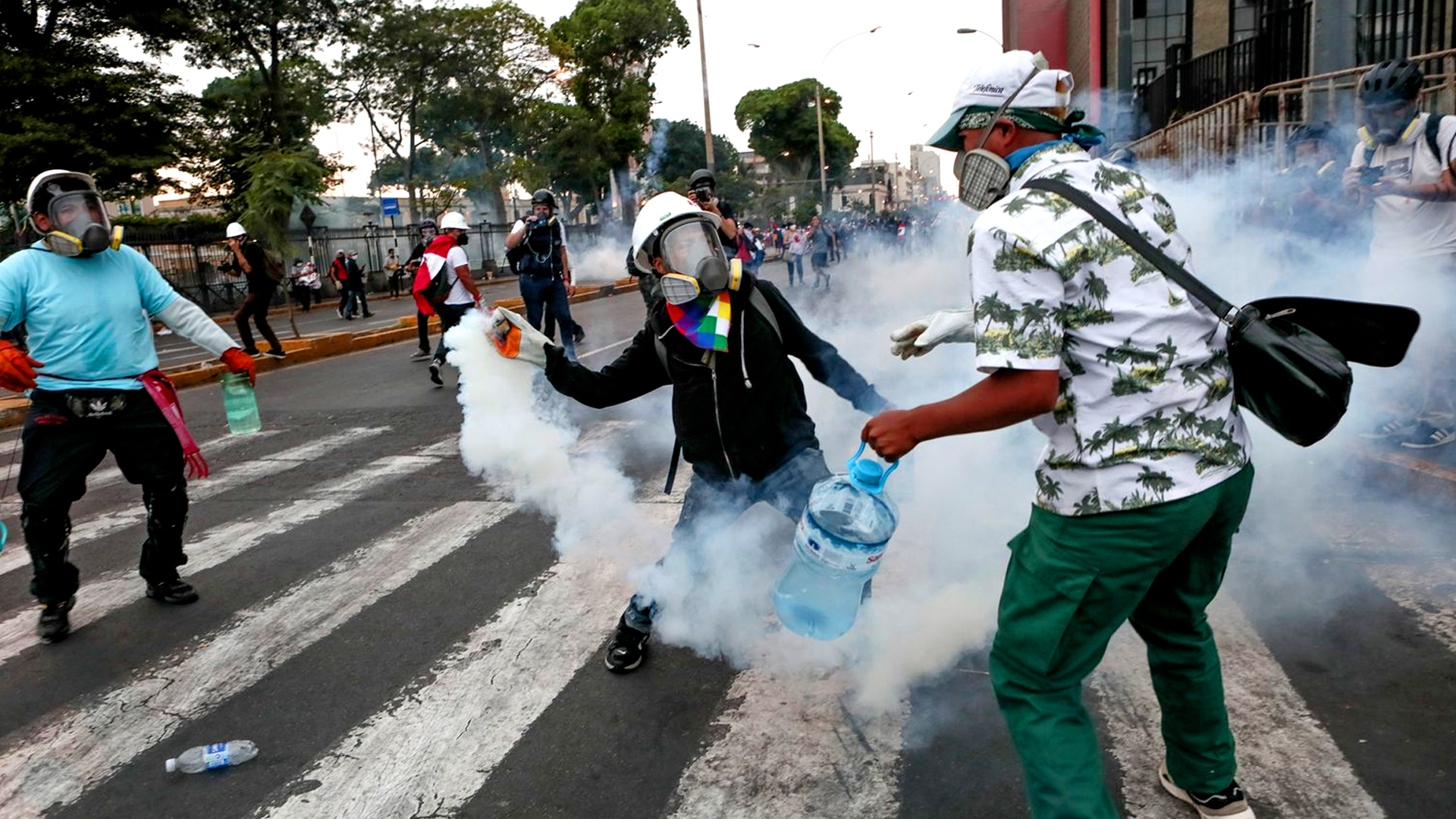Kosovo, Serbia agree on how to implement EU normalisation plan
Kosovo and Serbia have tentatively agreed on how to implement a European Union-sponsored plan to normalise their ties, according to the bloc’s top diplomat, though leaders of the two nations said disagreements remained.
The deal on Saturday came after 12-hour talks between Kosovo Prime Minister Albin Kurti, Serbian President Aleksandar Vucic and EU officials on implementing the normalisation plan, which both sides had agreed to in Brussels last month.
The two leaders held separate meetings with EU foreign policy chief Josep Borrell before a three-way session in the North Macedonian town of Ohrid.
“We have a deal,” Borrell tweeted after the meeting.
“Kosovo and Serbia have agreed on the Implementation Annex of the Agreement on the path to normalisation of relations,” he said.
This means “practical steps on what has to be done, when, by who and how,” he added at a news conference.
We have a deal
Kosovo and Serbia have agreed on the Implementation Annex of the Agreement on the path to normalisation of relations
The parties have fully committed to honour all articles of the agreement and implement their respective obligations expediently and in good faith. pic.twitter.com/p3CUBdcd8A
— Josep Borrell Fontelles (@JosepBorrellF) March 18, 2023
Kosovo and Serbia have been in EU-backed talks for nearly 10 years since Kosovo declared independence in 2008, almost a decade after war ended Serbian rule. But Serbia still regards Kosovo as a breakaway province and flare-ups between the Balkan neighbours have stoked fears of a return to conflict.
Both countries hope to join the EU one day, and they have been told they must first mend their relations. Solving the dispute between Serbia and Kosovo has become more important as war rages in Ukraine and fears mount in the West that Russia could try to stir instability in the volatile Balkans, where it holds historic influence.
The EU plan calls for the two countries to maintain good neighbourly relations and recognise each other’s official documents and national symbols. But the plan, drafted by France and Germany and supported by the United States, does not explicitly call for mutual recognition between Kosovo and Serbia.
If implemented, it would prevent Belgrade from blocking Kosovo’s attempts to seek membership in the United Nations and other international organisations.
Although tentatively agreeing on the EU plan reached last month, Serbia’s populist President Vucic seemed to backtrack on some of its points after pressure from far-right groups, which consider Kosovo the cradle of the Serbian state and Orthodox religion.
Vucic said on Thursday that he “won’t sign anything” at the Ohrid meeting and earlier pledged never to recognise Kosovo or allow its UN membership. He repeated Saturday that he has not signed the implementation document, although Kurti insisted on it.
He said the parties have not agreed on all points, but “despite differences, we had decent conversation”.
He added, “In the months ahead, we are facing serious and difficult tasks.”
On the other hand, Kurti complained that Vucic did not sign the implementation deal on Saturday.
“This is a de facto recognition between Kosovo and Serbia” since Serbia has not yet signed the agreement, he said, adding, “Now it is up to the EU to make it internationally binding.”
Borrell said the EU will now forcefully demand both sides to fulfil obligations if they want to join the bloc, warning there would be consequences otherwise.
He also touched upon a proposed association of Serb municipalities in Kosovo, which would give greater autonomy to Serb majority municipalities, a long disputed topic.
“Kosovo has agreed to launch immediately — and when I am saying immediately, I mean immediately — negotiations with the European Union facilitated dialogue on establishing a specific arrangement and guarantees to ensure an appropriated level of self-management for the Serbian communities in Kosovo,” the EU top diplomat said.
Kosovo is a majority ethnic Albanian former province of Serbia. The 1998-1999 war erupted when separatist ethnic Albanians rebelled against Serbia’s rule, and Belgrade responded with a brutal crackdown.
About 13,000 people died, mostly ethnic Albanians.
In 1999, a NATO military intervention forced Serbia to pull out of the territory. Kosovo declared independence in 2008.
Tensions have simmered ever since. Kosovo’s independence is recognised by many Western countries, but it is opposed by Belgrade with the backing of Russia and China. EU-brokered talks have made little headway in recent years.
Serbia has maintained close ties to its traditional Slavic ally Russia despite the war in Ukraine, partly because of Moscow’s opposition to Kosovo’s independence and possible veto on its UN membership at the Security Council.



